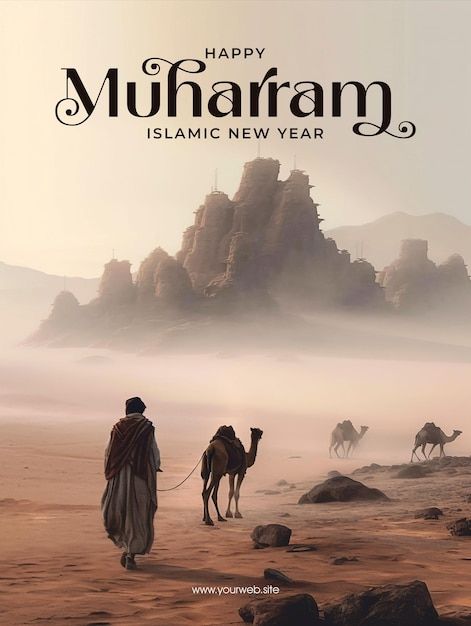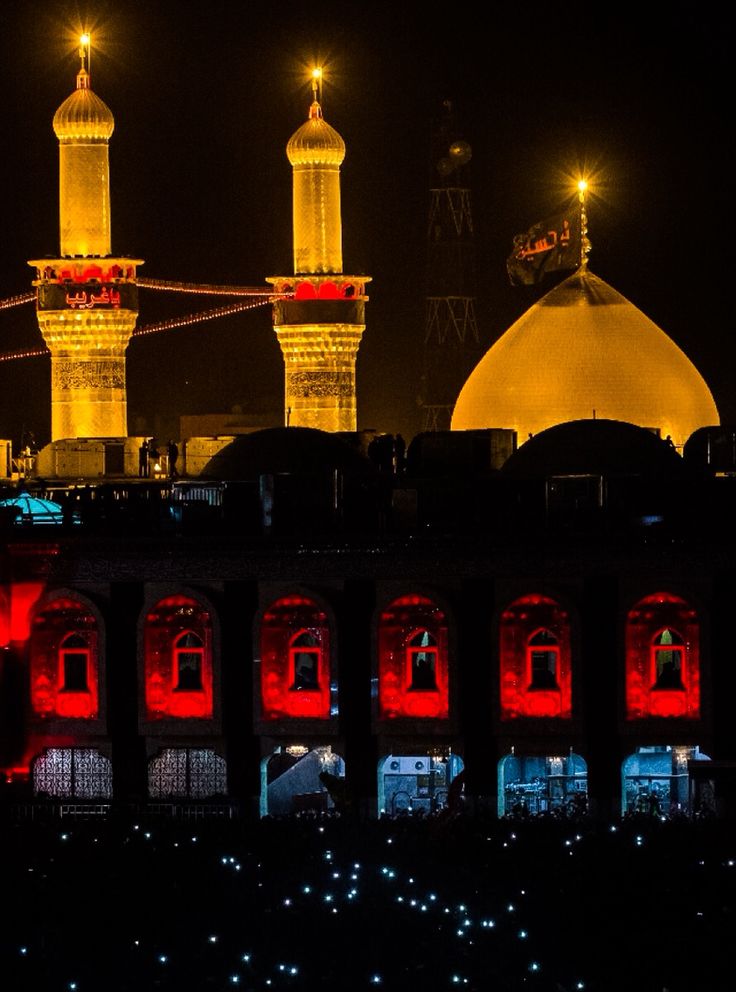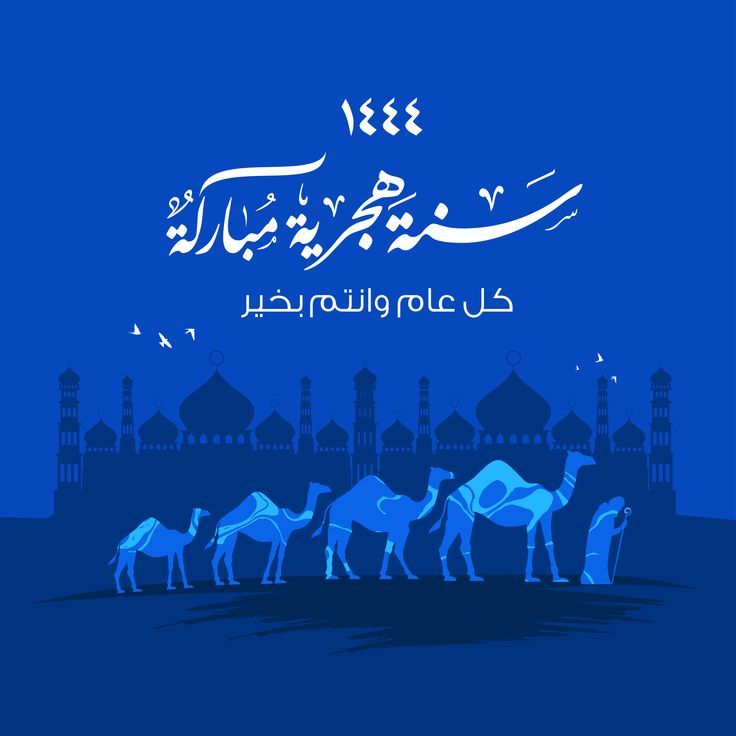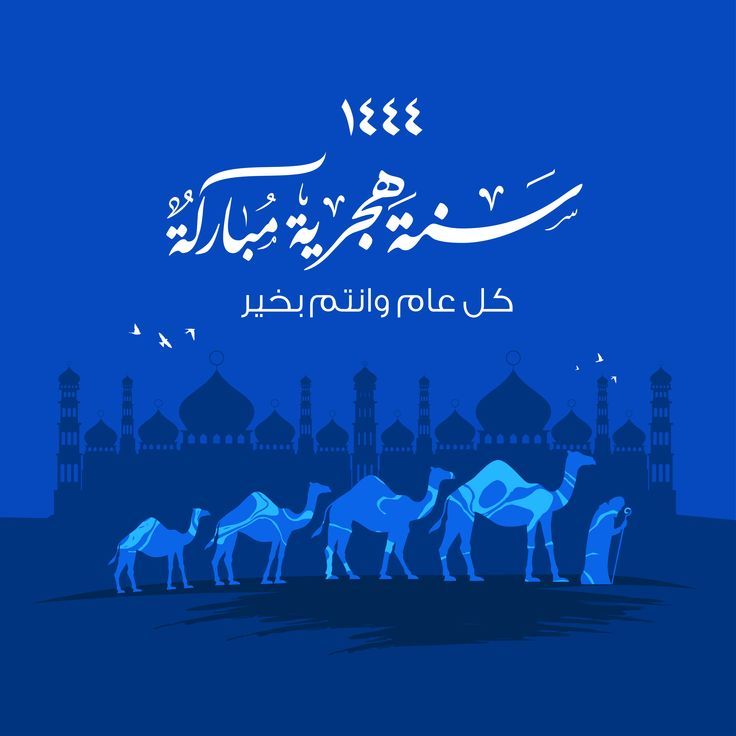The Islamic New Year is more than just the start of another calendar cycle—it’s a sacred and reflective time for Muslims across the world. Marking the beginning of the Hijri calendar, this day is filled with meaning, history, and emotion. Unlike the festive and fireworks-laden New Year’s Eve in many cultures, the Islamic New Year is solemn, spiritual, and deeply introspective.
From its historical roots to how it’s celebrated today, this article dives deep into the origin, significance, traditions, and global observance of this powerful and emotionally resonant time.

What Is the Islamic New Year?
The Islamic New Year, also known as Hijri New Year, marks the beginning of the Islamic lunar calendar. It falls on the first day of Muharram, the first month in the 12-month Hijri calendar. The Islamic calendar began in 622 AD when the Prophet Muhammad (PBUH) migrated from Makkah to Madinah — a pivotal journey known as the Hijrah.
This migration is not just historical—it symbolizes transformation, trust in Allah, and the courageous pursuit of truth.
The Spiritual Meaning of the Islamic New Year
For believers, the Islamic New Year is an opportunity to:
- Reflect on the past year’s deeds
- Set spiritual goals for the coming year
- Increase prayers and good deeds
- Remember the trials of the Prophet and early Muslims
Unlike the Gregorian New Year, which is often celebratory, the Islamic New Year calls for a spiritual reset. Muslims take time to evaluate their relationship with Allah, seek forgiveness, and commit to personal and religious improvement.
Why the Islamic New Year Matters More Than You Think
Many Muslims don’t realize the depth of meaning behind this occasion. The Islamic New Year:
- Honors the courage of the Prophet’s migration
- Highlights the beginning of Islamic civilization in Madinah
- Offers a chance for Tawbah (repentance) and Niyyah (renewed intentions)
- Serves as a time to remember sacrifices, especially those made during the events of Karbala
When approached mindfully, it becomes one of the most emotionally transformative times of the year.
The Hijri Calendar vs. Gregorian Calendar
To fully understand the Islamic New Year, we must look at the differences between the calendars. The Hijri calendar is lunar, while the Gregorian calendar is solar. This means that the Islamic year is approximately 10 to 11 days shorter than the Gregorian year. As a result, Islamic New Year moves backward through the seasons over time.
This shift emphasizes the fleeting nature of time — a key Islamic concept — and invites Muslims to remain spiritually prepared at all times.
How Is the Islamic New Year Observed?
Muslim cultures observe the Islamic New Year differently depending on local traditions and beliefs. However, the common thread is spiritual reflection.
Common Practices Include:
- Fasting on the first day or on the 9th and 10th of Muharram (especially on Ashura)
- Reciting Duas and Qur’an
- Attending lectures or sermons about the Hijrah and Karbala
- Charitable giving in the name of those who suffered for Islam
Islamic New Year Around the World
Saudi Arabia:
The occasion is marked quietly, as it’s a deeply spiritual time. Businesses and schools may remain open, but Muslims engage in private prayers and remembrance.
Pakistan:
While there’s no public festivity, the Islamic New Year is observed with special TV broadcasts, Majalis, and remembrance of Imam Hussain (RA).
Indonesia and Malaysia:
Some regions organize parades with Islamic chants, recitations, and community meals.
Iran:
Deeply tied to Karbala remembrance, the first 10 days of Muharram are observed with mourning and processions.
The Month of Muharram and Its Link to Islamic New Year
The Islamic New Year falls on the first day of Muharram, one of the four sacred months in Islam. Allah commands in the Qur’an (Surah At-Tawbah 9:36) that these months are periods of peace, piety, and worship.
Muharram also includes the significant day of Ashura (the 10th of Muharram), which holds deep historical weight:
- For Sunni Muslims: A day of fasting commemorating the day Allah saved Moses (Musa AS) and his people from Pharaoh.
- For Shia Muslims: A solemn day remembering the martyrdom of Imam Hussain (RA) and his companions in Karbala.

Lessons from the Hijrah for the Islamic New Year
The Islamic New Year serves as a reminder of the lessons of the Hijrah, such as:
- Sacrifice: Leaving behind comfort for the sake of faith
- Trust in Allah: Placing complete reliance on divine wisdom
- Brotherhood: The bond between the Muhajireen and Ansar in Madinah
- Purpose: Aligning every action with the goal of seeking Allah’s pleasure
#These lessons aren’t just historical—they are deeply relevant in our modern lives, whether we are facing spiritual struggles, workplace pressures, or personal grief. https://www.espncricinfo.com/cricketers/shadman-islam-629057
Modern Reflections on Islamic New Year
In today’s fast-paced world, we rarely pause to ask ourselves deep questions. The Islamic New Year invites us to:
- Reconnect with our spiritual identity
- Think about how much Qur’an we’ve read
- Consider how we treat others
- Measure how much time we spend in gratitude versus complaint
This is a time to realign with values, renew faith, and reform behavior.
Celebrating Islamic New Year as a Family
One of the most meaningful ways to honor the Islamic New Year is with loved ones. Here are a few ideas:
- Read stories about the Hijrah with your children
- Prepare a simple meal and reflect on the past year
- Make a list of family Islamic goals
- Memorize a new Surah or Hadith together
It’s not about luxury or extravagance—it’s about bonding through faith.
The Role of Dua on Islamic New Year
The first night of the Islamic New Year is ideal for making personal duas. Many scholars recommend the following supplication:
“O Allah, bring this year upon us with security, faith, safety, Islam, and Your pleasure. And protection from Shaytan and the anger of Allah.”
This moment of connection, in the silence of night, can be more powerful than a hundred New Year’s resolutions.
Common Misconceptions About Islamic New Year
Many Muslims confuse cultural traditions with religious obligations. Let’s clarify a few:
- No prescribed feast or gift-giving in Islamic New Year
- No specific congregational prayer like Eid
- No celebration with music or dance as with the Gregorian New Year
The focus should remain spiritual and reflective, rather than celebratory.
What Scholars Say About Islamic New Year
According to Ibn Rajab al-Hanbali, the first month of the year is an ideal time to fast and to seek Allah’s mercy. Scholars emphasize that even though there’s no specific event like Eid, the Islamic New Year is still a sacred time deserving reverence.

How to Make Islamic New Year More Meaningful
Here are 7 things you can do to elevate your Islamic New Year:
- Start a gratitude journal
- Fast on the first 10 days of Muharram
- Read Surah At-Tawbah, especially verse 36
- Reflect on the Hijrah
- Donate to a charity
- Reach out to a loved one you’ve lost touch with
- Set 3 spiritual goals for the year ahead
Islamic New Year Quotes to Reflect Upon
- “Indeed, the number of months with Allah is twelve…” (Surah At-Tawbah 9:36)
- “Every act of goodness is charity.” (Sahih Muslim)
Use these quotes to spark reflection and share them to inspire others.

Final Thoughts: Why Islamic New Year Deserves Your Attention
The Islamic New Year isn’t about fireworks or parties. It’s about pausing, remembering, reconnecting, and moving forward with faith and purpose. In a world that thrives on distraction, this sacred moment gives Muslims a much-needed spiritual anchor.
By treating the Islamic New Year with the reverence it deserves, we not only honor our past—we also invest in a better future, in both this life and the hereafter.
Reconnecting With History Through Islamic New Year
The Islamic New Year offers Muslims a chance to reconnect with their identity, to remember their roots, and to reignite their spiritual commitments. In a time when distractions are many and faith is often tested, this moment becomes a beacon of hope and clarity.
The beginning of Muharram is a reminder of resilience, especially when reflecting on the historic migration of Prophet Muhammad (PBUH). He left behind comfort, wealth, and familiarity—not for worldly gain, but for truth, purpose, and obedience to Allah. That journey changed history.
Why the Hijrah Is the Ultimate Symbol of Faith
The Hijrah was not just a change of location; it was the turning point in Islamic history. The Quraysh of Makkah were oppressing Muslims, mocking their faith, and endangering their lives. Yet, the Prophet (PBUH) did not retaliate with anger. He waited for Allah’s command and then migrated in peace and full trust in divine guidance.
This very event is what the Islamic New Year commemorates. It is a yearly reminder that even when the world seems against you, faith can be your most powerful weapon.
The Emotional Power of Muharram
While Muharram is often associated with sorrow—particularly the Day of Ashura—it is also a month of spiritual awakening. It teaches that loss, pain, and hardship are part of the human journey, but when endured for the sake of Allah, they are never in vain.
The story of Imam Hussain (RA), grandson of the Prophet (PBUH), is especially moving. His stand at Karbala—where he refused to bow to tyranny and upheld truth even in the face of death—resonates deeply with Muslims across sects.
His sacrifice on the 10th of Muharram wasn’t for power, but for integrity, justice, and the preservation of Islamic values.
Islamic New Year and Self-Development
For the modern Muslim, the Islamic New Year is also a time to set realistic, faith-based goals. This might include:
- Performing all five prayers on time
- Learning the meaning of the Qur’an
- Avoiding gossip and backbiting
- Giving regular charity
- Strengthening family ties
- Reducing time spent on social media
These goals aren’t just religious—they improve character, community, and mental well-being.
Activities to Deepen Islamic New Year Experience
1. Attend or Host a Gathering:
Whether it’s a Majlis, a lecture, or just a family circle, gather to talk about the importance of Hijrah and the lessons of Muharram.
2. Islamic Journaling:
Write about your last year’s highs and lows, what you learned, and how you wish to grow. This practice increases self-awareness and gratitude.
3. Youth Involvement:
Get the younger generation engaged by sharing stories of the Sahaba, playing Islamic quizzes, or having them research what makes Hijrah meaningful.
4. Decorate with Purpose:
Create visual reminders—calligraphy of Qur’anic verses, inspirational Islamic quotes—to set a spiritual tone for the year.
Avoiding Innovation (Bid’ah) in Observing Islamic New Year
While it’s encouraged to reflect and make personal improvements during the Islamic New Year, Muslims should avoid innovations (Bid’ah) in religious practice that the Prophet (PBUH) and his companions did not engage in. These include:
- Celebrating the day like Eid with lavish meals and parties
- Assigning special rituals not rooted in Qur’an or Sunnah
- Making up unauthenticated Duas or prayers
Instead, we should stick to what’s authentic and maximize reward through sincerity.
Voices of Scholars on the Islamic New Year
Here are some timeless insights from respected scholars:
“The beginning of the year is like the beginning of life—whoever starts it with righteousness will find ease and light.” — Ibn Al-Qayyim
“Use the sacred months to strengthen your link with Allah and break your link with sins.” — Imam Al-Ghazali
“A wise Muslim plans for the Hereafter, not just this Dunya.” — Imam Shafi’i
These words give weight to why we should take Islamic New Year seriously, not just as a calendar shift but as a spiritual turning point.
Global Challenges and the Relevance of Islamic New Year
As wars rage, values decay, and mental health crises increase, the Islamic New Year becomes more relevant than ever. It invites us to:
- Reassess our role in society
- Stand up for justice and morality
- Offer more mercy and compassion to those around us
- Speak out against injustice, following the example of Imam Hussain (RA)
This is not a passive time. It’s a call to conscious living.

A Simple Daily Plan for the First 10 Days of Muharram
| Day | Action Item |
|---|---|
| Day 1 | Make a special Dua to start the year with faith and purpose |
| Day 2 | Donate to a cause, no matter how small |
| Day 3 | Recite Surah Al-Fatiha with deep reflection |
| Day 4 | Avoid arguing, even if you’re right |
| Day 5 | Say “Astaghfirullah” 100 times |
| Day 6 | Fast if you can, and reflect on hunger |
| Day 7 | Read a story of a Prophet |
| Day 8 | Write down 5 sins you want to quit this year |
| Day 9 | Fast the day of Tasu’a (9th Muharram) |
| Day 10 | Fast on Ashura, and reflect on Imam Hussain’s sacrifice |
Final Reflections: Your Journey Begins Now
This Islamic New Year, don’t wait for the right moment—make it the right moment.
Reflect, reset, and rise.
Let this be the year you:
- Turn off distractions and tune into your heart
- Spend less time chasing dunya and more time embracing Deen
- Forgive yourself and others
- Reconnect with your purpose, your prayer, and your Prophet (PBUH)
Every day is a page in your book. Write it with intent, devotion, and love for Allah.
Conclusion
The Islamic New Year is a rare gift—a moment of stillness in a chaotic world. It’s your time to pause, breathe, and reclaim your connection with the Divine. More than a date on a calendar, it is an invitation to step into the year with faith over fear, purpose over pleasure, and sacrifice over selfishness.
May your Islamic year be full of light, mercy, and barakah. Ameen.



